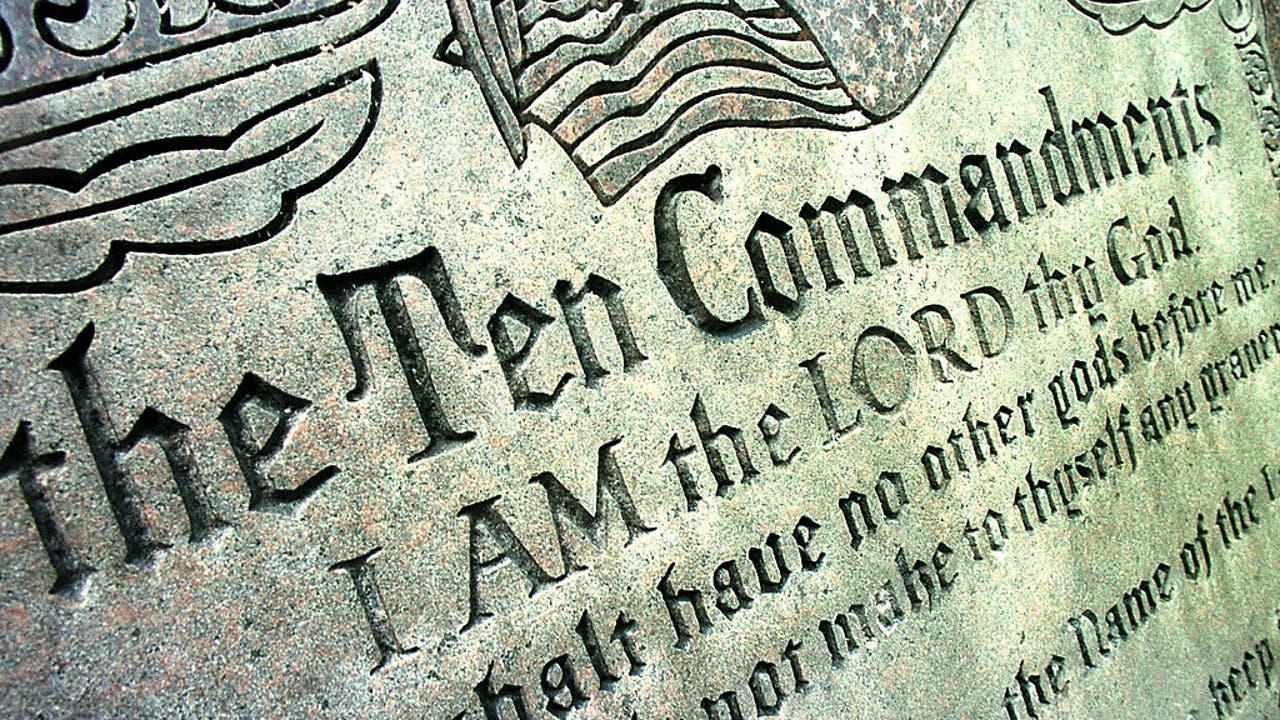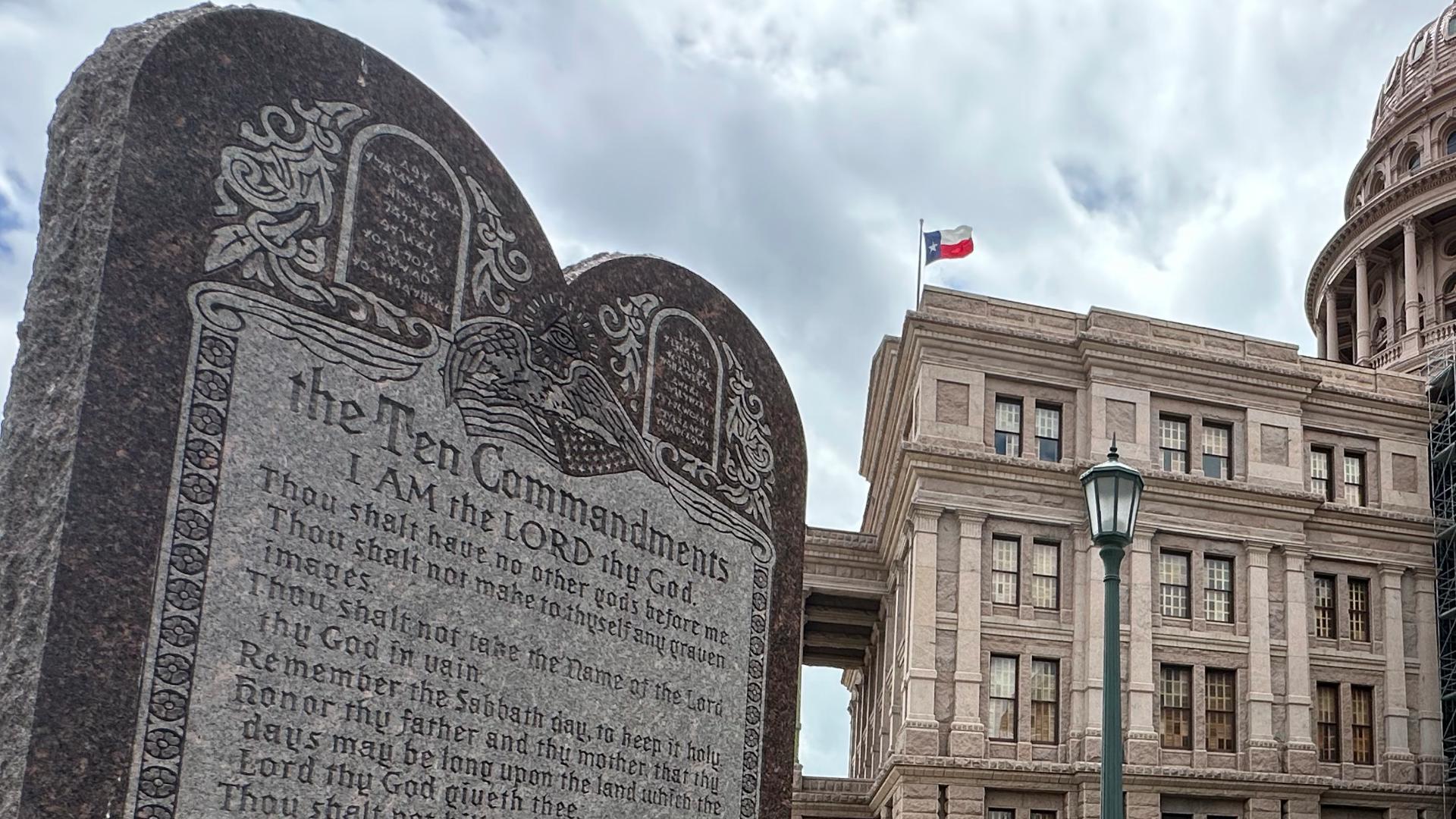Opponents of the recently passed Texas legislation regarding school prayer and the display of the Ten Commandments are voicing strong criticism, urging lawmakers not to "turn public schools into Sunday schools." This phrase captures the concerns of many who argue that such measures, while driven by conservative Christian values, could impose religious practices on students who do not share those beliefs.
The new laws, which have sparked significant debate across the state, could fundamentally change the nature of public education, raising questions about the balance between freedom of religion and the separation of church and state.
Texas has been a battleground for debates on the role of religion in public life for years, and this latest legislation is the latest flashpoint. The bills, which allow for voluntary prayer during school hours and mandate the display of the Ten Commandments in every public school classroom, reflect a broader trend across the country where conservative religious groups have pushed for more religious presence in public spaces.

For some, these bills are seen as a necessary correction to what they perceive as a decline in moral values, but for others, they represent an overreach that threatens the rights of students who do not identify with Christianity.
The Texas Senate's decision to pass Senate Bill 11, which would give students time to pray during school hours, and Senate Bill 10, which requires public schools to display the Ten Commandments, has been met with fierce opposition from a variety of groups, including religious minorities, civil liberties advocates, and even some members of the Christian community who disagree with the scope of these bills.
Opponents of the bills argue that these measures blur the lines between church and state, potentially violating the constitutional separation of religion from government institutions. They contend that public schools should not become places of religious instruction, especially when it comes to promoting one particular faith.
"We do not need to — and indeed should not — turn public schools into Sunday schools," said a coalition of 166 faith leaders in a letter sent to the Texas Legislature. This group, which includes leaders from a diverse range of religious traditions, including Sikh, Jewish, Baptist, and Buddhist communities, emphasized that while individuals should have the freedom to practice their faith, public schools should remain neutral spaces that respect the beliefs of all students.

One of the primary concerns of critics is that the display of the Ten Commandments in public schools could be seen as endorsing one religious tradition over others. While the Ten Commandments hold significant importance for many Christians, they are not universally accepted or revered by all faith groups.
Critics argue that such displays could create an environment where non-Christian students feel marginalized or excluded. Furthermore, some believe that the inclusion of religious symbols in public schools sends the wrong message about religious freedom, suggesting that only one religion is welcome in these spaces.
In addition to concerns about religious symbolism, the school prayer bill has raised alarms about the potential for religious coercion. While the bill does not mandate prayer, it allows districts to set aside time during the school day for voluntary prayer.
Opponents worry that this could lead to situations where students feel pressured to participate in religious practices, even if they do not wish to do so. Public schools, critics argue, should remain inclusive environments where students are not made to feel uncomfortable or coerced into religious activities.
One of the most vocal critics of the school prayer bill is Senator Nathan Johnson, a Democrat from Dallas, who argued during the Senate debate that the bill would expand the role of public education into matters that should be left to families and religious institutions.
"I think you’re expanding the role of our public education system to include matters that particularly conservatives have previously said is a private matter," he said. Johnson's comments reflect a broader concern that these bills could further entrench religious practices in a system that should prioritize education over religious indoctrination.
The bills, however, have significant support from conservative Christian groups who see them as a victory for religious liberty. These supporters argue that public schools have become too secular and that the presence of religious symbols and practices in schools can help reestablish a moral framework for students.
Republican Senator Mayes Middleton, one of the authors of the bills, argued that Texas schools should not be "God-free zones," emphasizing that the state should not restrict religious expression in public spaces. Middleton also thanked former President Donald Trump for his efforts to make prayer in public schools a priority during his administration, signaling the strong political and religious ties that underpin this legislation.

For conservative Christians, the passage of these bills represents a long-awaited opportunity to restore what they see as the nation's founding values. They argue that the moral decline of society can be traced to the removal of religious practices from public schools, and these bills are seen as a step toward reversing that trend. Many supporters believe that public schools should reflect the values of their communities, and for many Texans, those values are rooted in Christianity.
Despite the significant support for these bills, the controversy surrounding them is unlikely to fade anytime soon. The battle over the role of religion in public life is ongoing, and Texas is at the forefront of this debate. Similar measures have been proposed in other states, and the outcome of the Texas debate will likely set a precedent for future legislation on this issue.
As the bills continue to move through the legislative process, they will undoubtedly face legal challenges, particularly from groups that argue they violate the Establishment Clause of the First Amendment, which prohibits the government from establishing or endorsing any religion.
The debate over these bills also raises larger questions about the role of religion in the public square. In an increasingly diverse and pluralistic society, the question of how to balance the rights of religious groups with the rights of non-religious individuals is a complex and contentious one.

Advocates for religious freedom argue that the state should not inhibit religious expression, while opponents of these bills maintain that public schools should remain neutral and inclusive, respecting the rights of all students regardless of their religious beliefs.
As Texas lawmakers continue to push for more religious presence in public schools, it remains to be seen how the courts will respond to these efforts. Proponents of the bills are confident that the growing trend of religious liberty in public life will prevail, while critics are prepared to challenge the constitutionality of the measures.
What is clear, however, is that this issue will continue to be a source of division, with strong opinions on both sides. The outcome of the Texas debate will likely have far-reaching implications for the future of religious expression in American public schools, setting a precedent for how religious freedom is interpreted in the context of public education.
In the end, the controversy surrounding these bills underscores a larger cultural divide in the United States, one that will continue to shape the nation's approach to religious freedom, public education, and the role of faith in the public square. As the debate continues, it is clear that the intersection of religion and education will remain a hotly contested issue, with no easy answers or simple resolutions.
-1751080225-q80.webp)
-1751089148-q80.webp)
-1751364240-q80.webp)
-1750154189-q80.webp)